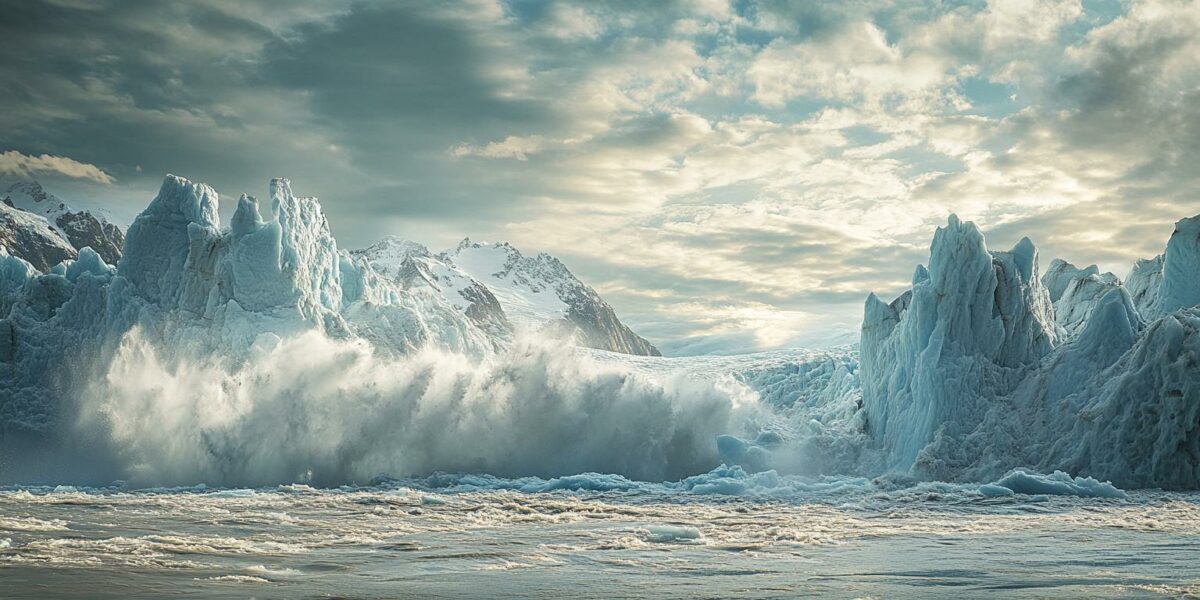Alaska’s Climate Crisis: A Sobering Reality
The Mendenhall Glacier’s rapid retreat is a stark indicator of climate change, revealing more rock each year. Recent glacial dam outbursts, however, show the immediate and disastrous effects of these changes, impacting communities and ecosystems alike.
Local, state, and federal officials have commendably rallied to address the flood recovery in Juneau. Their coordinated efforts, as highlighted by the Juneau Empire, are a testament to the community’s resilience.
Sen. Dan Sullivan’s pursuit of an ‘engineering solution’ to the “jokulhlaups,” or glacial outburst floods, underscores the urgency of finding effective responses to these climatic events.
Juneau’s future prosperity is threatened by recurrent floods, necessitating immediate solutions. The broader implications of climate change, however, demand comprehensive strategies to address emerging threats in new areas.
Unprecedented Disasters in Alaska
In 2022, Alaska faced an extraordinary number of disasters, with fourteen declarations made. Historically, the state averaged around four disaster events annually since 1978. The increase is largely attributed to climate change.
Notably, nine of these disasters—including landslides, fires, and floods—are directly linked to anticipated climate impacts. This alarming trend underscores the urgent need for robust climate action.
Alaska’s fisheries are also suffering. NOAA confirms that climate change-induced marine heat waves have led to the loss of 10 billion snow crabs and the decline of chum salmon, vital to Alaskan communities.
Key points:
- Landslides, fires, and floods tied to climate change
- Decline in crucial fish populations due to warming seas
- Economic and cultural impacts on Alaskan communities
The Role of Methane in Climate Change
Methane is a potent greenhouse gas, trapping 80 times more heat than carbon dioxide. In Alaska, industrial emissions from oil and gas operations are a significant source, accounting for 60% of the state’s total emissions in 2020.
Despite Alaska’s relatively small global emission contribution, reducing methane emissions can have a substantial impact. Scientists argue that halving methane emissions by 2030 could significantly slow global warming.
Moreover, the International Energy Agency states that the oil and gas industry can eliminate over 75% of its methane emissions using existing technology, making this a feasible and critical climate action.
The 2023 U.N. climate talks emphasized industry pledges to cut methane emissions by 80% by 2030. Notably, Exxon Mobil signed this pledge, but ConocoPhillips and Hilcorp did not, raising questions about their commitment.
Future Generations at Risk
According to a study on intergenerational climate impacts, if current warming trends continue, today’s children will experience three times as many climate disasters as their grandparents. This stark prediction highlights the urgent need for action.
The state of Alaska’s oversight agency, the Alaska Oil and Gas Conservation Commission, has a statutory duty to reduce natural gas waste. Exploring incentives to minimize flaring and venting of methane is crucial.
Alaska’s leaders have a responsibility to protect our communities, fisheries, and future generations from the escalating threats of climate change. Addressing methane emissions is a critical step in this process.
As Alaskans, we must balance immediate engineering solutions for glacial floods with long-term strategies to reduce greenhouse gas emissions, ensuring a sustainable future for all.



caroline_flare
Thanks for the detailed write-up. What are the most effective ways communities can adapt to these changes?
Zachary
LOL, just what Alaska needs—more problems! But seriously, this is alarming. 😢
Simba
Is there any hope left for reversing these climate impacts? Feeling pretty down about this.
ShadowPrism
If Exxon can commit to cutting emissions, why can’t ConocoPhillips and Hilcorp? Ridiculous!
john
Great article! But doesn’t Alaska have bigger problems to worry about?
penelopeinferno1
Wait, how is methane worse than CO2? I thought CO2 was the main problem?
Ella5
Thx for sharing this critical information! We need to act NOW! 🌍
Mariah
This is a disaster! Why aren’t more companies signing the pledge to cut methane emissions?
olive
Wow, this is really eye-opening. What can we do to help reduce methane emissions on a personal level?